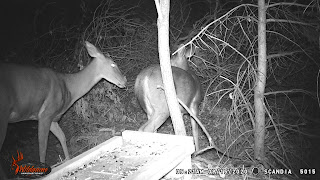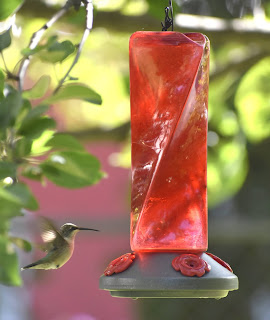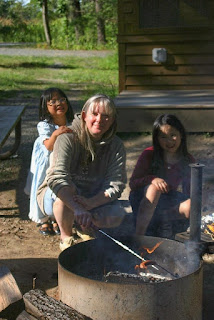Recently I read a book called
The Good Among the Great by Donald Van de Mark. People who are great tend to possess similar qualities that the author noted in his book. One person he said embodies all of the qualities is Meryl Streep. Each person, though, is able to work towards these qualities.
Below are the qualities and information from the book that I thought was interesting.
BE UNIQUELY YOU (AUTONOMOUS)
- It's better to hang out with people better than you. Pick out associates whose behavior is better than yours and you'll drift in that direction. (Warren Buffett)
- We are a product of choice, millions of choices that we make throughout our lives.
- It takes courage to grow up and become who you really are. The privilege of a lifetime is being who you are. E.E. Cummings
- Individuals who are on their own paths...not copycats or followers. And they certainly don't worry about what others think about them. They're rarely insecure about their appearance, behavior, or life choices. They seem assured, independent, and even sometimes detached or aloof. They rarely depend on anyone but themselves. They often don't subscribe to the norms and fashions to which most adhere.
- Try to make things right with those you've wronged.
- If your routine is drudgery and if you're afraid or feel exhausted, then you are not on your path.
- They've often worked very hard for their money and consider wasting it foolish, even sinful.
- Be honest with yourself about your evolving needs, wants, likes, and dreams.
- Respect and feed your animal appetites - eat, love, and exercise.
August 2008
- Plan and then make shifts so that you spend more time being where you want to be, working where and with whom you want to work, being with whom you want to be.
- Encourage others, especially children, to follow their dreams, large and small.
Sophia with a hand-beaded necklace she made in 2018.
She won a Grand Championship award at the State Fair for it.
HAVE LASTING LOVE (LOVING)
- Being deeply loved by someone gives you strength, while loving someone deeply gives you courage. (Lao Tzu)
- No one has the time and energy to truly love more than a handful of people at any given point in his or her lifetime.
- They tend to be kind to nearly everyone, especially children.
- There are other places to focus your energy: work, animals, nature, art, and being creative.
Olivia and Sophia seeing a butterfly they raised ready to be released.
- Show love by respecting your children. Give them freedom as well as support.
- Demonstrate rather than declare your love.
BE TRUE-BLUE (ETHICAL)
- People who are unethical have to compartmentalize their choices, their thinking, and behavior.
- Your reputation is your personal currency among everyone who knows you.
- Every time you are called to make a decision, remember that many choices move you toward or away from being a better person and having a better life.
Choosing to volunteer at the nursing home was incredibly rewarding.
- Measure your choices by your inner, higher values more than the world's material values.
- Focus on creating a whole and integrated personality, routine, and existence.
TUNE OUT TRENDS AND TRAFFICKERS (UNAFFECTED)
- Those who feel and stand apart from the rest of us are the ones who lead us.
- After you're away from the media for an extended period of time, you will be startled how silly and invasive many media messages feel.
- Commit to taking a sabbatical once a week from electronic media.
- Take a minimum one-week holiday every year from the news.
- Escape societal chatter by going to parks, beaches, and the wilderness.
Canoeing at Gunflint Lodge in 2013.
- Don't be afraid to stand up and say, "This is wrong!" even if no one stands with you.
- Do what feels true to who you are - not what appears cool or fashionable to anybody else.
PROTECT YOUR PRIVACY (PRIVATE)
- Prize and protect your privacy with vigilance.
- Spend at least several hours each week in your own company without the distractions of the television, the internet, or other people.
I spend time looking at the flowers growing in our yard.
Taken in August 2020.
- If you are seeking satisfaction through recognition, you are not seeking it from within.
- If recognized, remember the cycle of human commentary - if you're celebrated today, you'll be torn down tomorrow.
STAND BACK (DETACHED)
- Quiet your internal mind chatter with meditation, nature, creative pursuits, music, and exercise.
A monarch we raised and released in August 2020.
- Don't be afraid of appearing detached, odd, or aloof; intense concentration may make you appear this way to others.
- Don't smother your children. Respect them enough to honor their independence. That's respectful, not needy love.
GET OUT THE DOOR (EXPERIENTIAL)
- Organize new adventures for the whole family.
We had fun go-karting on August 16, 2020, in
St. Croix Falls, Wisconsin.
- Try a new route to work.
- Take your next vacation in a place you've never been.
- Choose one night a week to cook and taste new foods.
- Read a book in a genre you've never read.
- Wear a piece of clothing that is distinctly foreign.
- Take a class in some subject you've always found intriguing.
DON'T KID YOURSELF (REALISTIC)
- Resist the urge to always have an answer; practice saying, "I don't know."
I don't even pretend to know the answers about baseball.
- Don't exaggerate or understate. Precision in language will tighten your thinking and improve your judgment.
CHILL OUT (LAID BACK)
- Relish the present instead of questioning past choices and events or rushing toward "what's next."
It's hard to believe that this was just two years ago in September.
We were enjoying a stop at Eichtens to sample cheeses and dips,
and doing other fun fall-themed activities.
- Resist the tendency to predict. Many forecasts are born of fear and discomfort, not knowledge.
TAP DANCE TO WORK (PERFORMANCE AND PROCESS ORIENTED)
- We work to become, not to acquire. (Elbert Hubbard)
- Create a daily routine tailored to your wants and talents, not just your needs or the needs of others.
- Be alert to what excites you.
Trying my hand at new types of art excites me.
This is my fused glass project before it went into the kiln.
- Seek and learn to enjoy time along.
RESPECT ALL SOULS (EGALITARIAN)
- Treat everyone with respect - especially your subordinates.
Volunteers who helped with Olivia's 4-H OWLS project.
She planned this public garden that has native trees, shrubs, wildflowers, and grasses.
The plants all benefit early-migrating birds, pollinators, butterflies, and
other wildlife. (Taken on August 22, 2020.)
- Being smarter or more capable does not make you better. There's much more to being a better human being than being clever and accomplished.
LAUGH WITH ME (JOLLY)
- Laugh at your aches and pains.
Getting ready for surgery - October 2019.
- Observe and enjoy comedians who get laughs without being hostile, aggressive, superior, or smutty.
- Never make jokes at other people's expense.
IT'S NOT ABOUT YOU (EMPATHIC)
- Empathy is the first step toward anticipating others' needs and wants - invaluable in business and all aspects of service to others.
Sophia after foot surgery in July 2017.
- Being sensitive to others is not a sign of weakness but a sign of awareness, which is a strength.
BE PROACTIVE (DUTIFUL)
- Duty is born of a sense of kinship with all humanity.
- No contribution or bit of honest effort is too small.
Volunteers at the Service Project Sampler Day that I coordinated.
- Help out in areas where you already have desire and skill.
DELIGHT IN THE DAY-TO-DAY (APPRECIATIVE)
- Be grateful that while much of life is not in your control, much is.
- Appreciate what you don't know, how much you can learn, and how much remains a mystery - and in that lies great possibility, hope, and risk.
A beautiful sunset in October 2018.
- Regularly take ten minutes to be outside. While you're out, fully engage each and every one of your senses and appreciate those natural things that delight you.
GO OUTSIDE AND PLAY (CREATIVE)
- Find quiet time alone regularly.
- Encourage and participate in artistic endeavors, no matter how simple.
- Keep a notepad or recorder in the car.
- Sensory experience suspends analytical thing and spurs creativity. take a hot shower, go outdoors, take a long walk, swim, or immerse yourself in nature.
One of the newest flowers in our backyard garden.
- Schedule time for daydreaming and time with no purpose.
- If you have children or pets - let them choose the game or activity and encourage them to create games of their own making.
- Change your routine routinely.
- Use your hands.
A window star I made in March 2020.
- Think of the creative process as one of allowing rather than doing.
SHOULD OUT LOUD (EXUBERANT)
- Celebrate surprises and successes immediately.
Celebrating Olivia's success with overseeing the planting of
two public gardens in town.
She has 4 more gardens that she is overseeing as part of
her 4-H OWLS (Outdoor Wilderness Leadership & Service) project.
- Observe and participate in games and creative and physical pursuits.
DIVE INTO WHAT YOU LOVE (JOYOUS)
- Resist detailed career planning. Allow yourself to stumble to the top by doing what you want to do.
- What do you really want and what really makes you happy?
Spending time with dogs makes me happy.
This is my brother's new Corgi, Bear.
- Life is short. Don't waste a breath on things or people who are tedious or irritating.
TAKE A PEAK (TRANSCENDENT)
- Get outdoors.
One of the new flowers by the west side of our garage.
It is the only flower that begins with the letter "K"
that we could find that grows in our area in Minnesota.
- Train and exhaust yourself physically.
- Retreat on your own without distraction. Take the time to be still and listen to that small voice deep within you about what you're meant to be or what path you ought to follow.























































